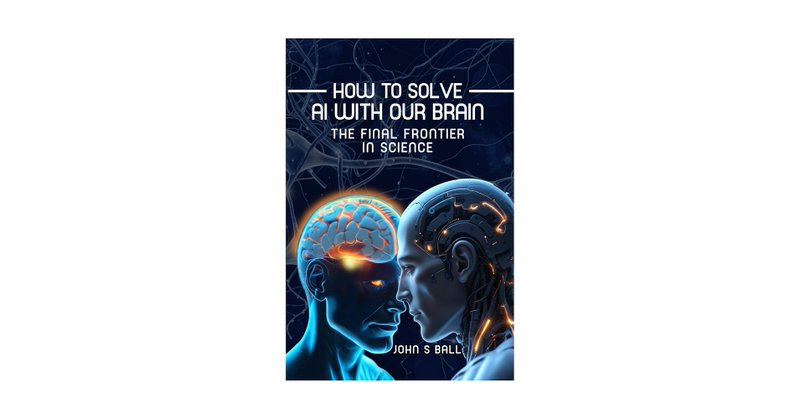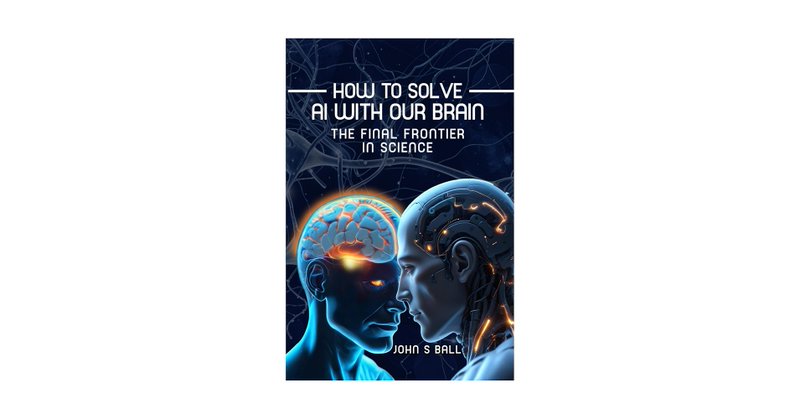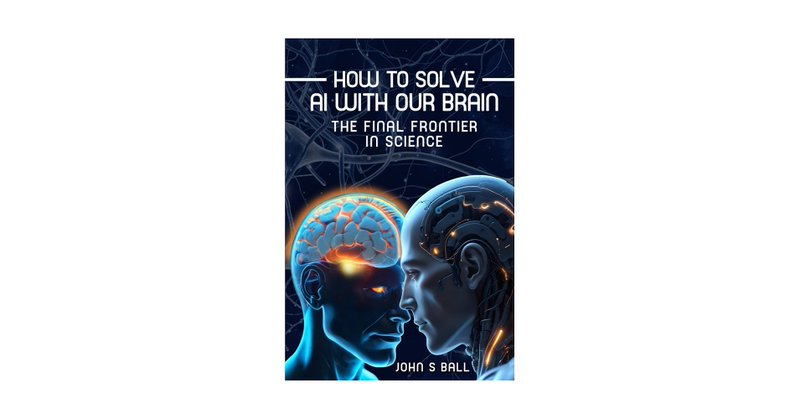
Beth Carey
@BethCarey12
Followers
762
Following
5K
Media
553
Statuses
4K
Enabling the #trustworthyAI language interface for devices
Palo Alto
Joined August 2013
'How to solve AI with Our Brain - the Final Frontier in Science' Find out about the journey to ethical AI by Cognitive scientist @jbthinking and what his vision is when we have the ultimate control of the machine interface -with our language.
1
2
6
𝐖𝐡𝐚𝐭'𝐬 𝐓𝐡𝐞 𝐎𝐧𝐞 𝐂𝐫𝐢𝐭𝐢𝐜𝐚𝐥 𝐂𝐨𝐠𝐧𝐢𝐭𝐢𝐯𝐞 𝐂𝐚𝐩𝐚𝐛𝐢𝐥𝐢𝐭𝐲 𝐓𝐡𝐚𝐭 𝐖𝐢𝐥𝐥 𝐔𝐧𝐥𝐨𝐜𝐤 𝐀𝐆𝐈, 𝐓𝐡𝐚𝐭 𝐋𝐋𝐌𝐬 𝐂𝐚𝐧 𝐍𝐞𝐯𝐞𝐫 𝐃𝐨 (Part 2 of 2) For all the spectacle surrounding today’s artificial intelligence, from LLMs that churn out essays on
3
1
10
‘Deep language understanding’ is only possible with ‘Deep Symbolics’ . The tide is turning. It’s receding fast and those swimming naked are being exposed. Today’s generative AI all operate on ‘generation’ without ‘understanding’. So how do they solve their problems? A new
1
1
2
Are you prepared to update this daily @marcusarvan with the new appearances of misalignment like a whack-a-mole game at society's expense 😀 or should I say, 😢? The next generation of language AI achieves the trustworthy human-machine interface because by design it
“If biological life is, as Hobbes famously said, “nasty, brutish, and short”, LLM counterparts are dishonest, unpredictable, and potentially dangerous.” What can do about it? New essay at Marcus on AI.
2
0
1
Today's generative AI can't replicate human intelligence because of the underlying statistical nature. The only trustworthy human-machine interface with language is the one designed on the gold standard - our brain! @jbthinking cuts through to the solution using brain science
World models are the new goal and the new holy grail. Language alone can’t replicate human intelligence—AI needs to understand and simulate the physical world. Stanford’s Fei‑Fei Li and Meta’s Yann LeCun argue conventional LLMs lack spatial reasoning, memory, planning. Their
1
1
5
The brain is a multi-sensory pattern matcher and this is how it works https://t.co/U3twTuTxhi
amazon.com
by John Ball is a groundbreaking exploration of artificial intelligence through the lens of cognitive science. John Ball is a cognitive scientist, computer artisan, and one of the leading innovators...
0
1
1
Perfectly said @MrEwanMorrison . This is singularly the most fundamental flaw ed assumption that perpetuates today's erratic Generative AI architecture. The knowledge gap between what we know about the human brain and Large Language Models is vast. So to shrink that chasm AI
Sabine should know better than to use the 'Human brains are machines too' trick. This linguistic trick is often used by AI pushers. The knowledge gap between what we know about the human brain and Large Language Models is vast. So to shrink that chasm AI pushers say "The brain
2
1
7
The “Godfather of AI” is not talking about Large Language Models but about some hypothetical future AI that our current AI is not capable of reaching. Note: AI gurus have been making such claims since the 1960s.
8
15
100
The lowest energy solution always wins. This means that an AI/AGI breakthrough based on how the brain works inherits that ~20W energy efficiency. With the speed of smart phone adoption generative AI will fall when the cognitive science breakthrough required is on show.
Rant Over the last few years, I've grown to despise Sam Altman. The idea that intelligence will require a significant fraction of the power on earth is the rumination of a self-absorbed megalomaniac who can't see past GPUs and LLMs. The human brain needs about 20W, the last I
2
2
9
@pmddomingos Yep. Everyone is sick and tired of the constant BS coming from the Sam Altmans and the Dario Amodeis of AGI mafia. 😁
0
1
20
New breakthroughs from the cognitive sciences are here for the next generation of tools robust enough for the trustworthy human machine interface of language. They emulate what the brain does for its accuracy and energy efficiency. @jbthinking writes about it here
It’s becoming increasingly apparent that @GaryMarcus is correct. New LLM models are producing diminishing returns. Current models are powerful and useful, but they are short of being reliable autonomous agents capable of replacing the vast human workforce. New breakthroughs
1
0
1
Just like Google wasn’t the first search engine, the model for how the brain works is opened up by cognitive scientists outside of the CS paradigm. Using brain science #PatomTheory and RRG linguists shows the way forward with the accuracy and energy efficiency of the brain
Is everyone fucking nuts? Did we actually believe that after decades and decades of studying the brain and coming up with next to zilch, that a handful of rich, arrogant midwits in Silicon Valley would come to a full understanding of consciousness and deliver to us artificial
1
1
3
The next generation? It will avoid inaccuracies and will have the energy efficiency of the brain. As for stealing and scraping training data? It is not required. https://t.co/iByU9AVFWt
amazon.com
by John Ball is a groundbreaking exploration of artificial intelligence through the lens of cognitive science. John Ball is a cognitive scientist, computer artisan, and one of the leading innovators...
@emollick 1. you really think model collapse has been resolved? eg I still see stuff look this https://t.co/A6ENRlC0MI 2. LLMs have hit a point of diminishing returns; lots of projects like GPT-5 have been delayed and/or didn’t return the expected results. The question is what
0
0
1














